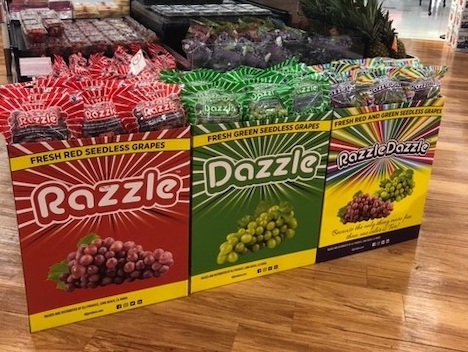Less than 15 months after breaking ground on the project, Blue Diamond Growers recently announced the expansion of its Turlock manufacturing plant is complete. The 52,000 square foot addition to the existing 200,000 square foot facility in town is one of two major expansions for Blue Diamond, a nonprofit grower-owned cooperative and the world’s leading processor and marketer of almonds. The other, in Salida, will be completed in May. The new Turlock expansion increases Blue Diamond’s value-added almond processing capabilities with an automated factory that features state-of-the-art handling, processing and packaging equipment and also provides space for a future manufacturing line to support both current business or new innovations.
The completion of the expansion comes as Blue Diamond celebrates its 110th anniversary and just seven years after its Turlock facility opened. Since 2013, Turlock’s Blue Diamond facility has received a number of accolades, including Food Engineering Magazine’s title of the 2014 Plant of the Year, as well as being named to Boston Consulting Group’s list of the fastest-growing midsize companies in the nation. The company is no stranger to building facilities quickly — Blue Diamond was able to move from groundbreaking to startup for the original plant in just 13 months. At the expansion’s groundbreaking ceremony in January 2019, Blue Diamond President and CEO Mark Jansen said they hoped to get the additional space built quickly due to the company’s rapid growth. Just over a year later, that goal was accomplished.
The new facility will be used specifically to create an integrated almond beverage base line, where, for the first time, everything needed for the product will be manufactured in the same facility. The base for Blue Diamond’s beverage line, Almond Breeze, will be created at the Turlock expansion through a process of blanching, splitting, roasting and grinding the almonds into a buttery paste, which will then be shipped all over the world to be mixed with water and sold as almond milk. Blue Diamond’s Almond Breeze production has experienced double digit growth over the last 20 years. In 2018, the brand grew by 14 percent. The original Turlock Blue Diamond facility is already processing about 25 percent more almonds than the company originally thought possible for the plant’s capacity after the company recently added an almond flour line to the mix.
The expansion comes as phase two in a three-phase, 15-year project that began when Blue Diamond purchased 88 acres at the intersection of North Washington and Fulkerth Road in late 2011. Since then, companies like Hilmar Cheese and Valley Milk have made their way into the Turlock Regional Industrial Park, while already-established facilities like United States Cold Storage and Sunnyside Farms are also currently in expansion mode. The second expansion in Salida is the new Bulk 8 Warehouse at the Salida facility that originally opened as an almond receiving station in 1969. Today the 675,000 square foot facility sits on 44 acres and includes a retail nut and gift shop. The new 58,000 square foot bulk storage facility is on schedule to be completed by the end of May, providing an additional 50 million pounds of in-house bulk almond storage capacity in time to receive the 2020 almond harvest. The 65-foot-tall building includes advanced design with an automated gravity fed spiral conveyance system that improves grower delivery efficiency and reduces damage to the almonds. “It is particularly meaningful for Blue Diamond to be able to commemorate our Founders Day today by not only recognizing our humble beginnings 110 years ago, but also celebrating two key growth milestones that help secure our future,” Jansen said. “I couldn’t be more proud that, despite the unprecedented challenges businesses around the world have faced over the past two months, our incredible team has been able to sustain operations as an essential food supplier, while completing these critical expansion projects ahead of schedule to meet customer needs.”
To celebrate the expansions and give back during the coronavirus pandemic, Blue Diamond, along with partners Union Pacific and Sun-Maid Growers of California, committed to a donation match of $50,000 to help support three food banks in northern and central California that are struggling to meet significant demand from local families in need.
https://www.turlockjournal.com/news/local/blue-diamond-completes-turlock-expansion/

